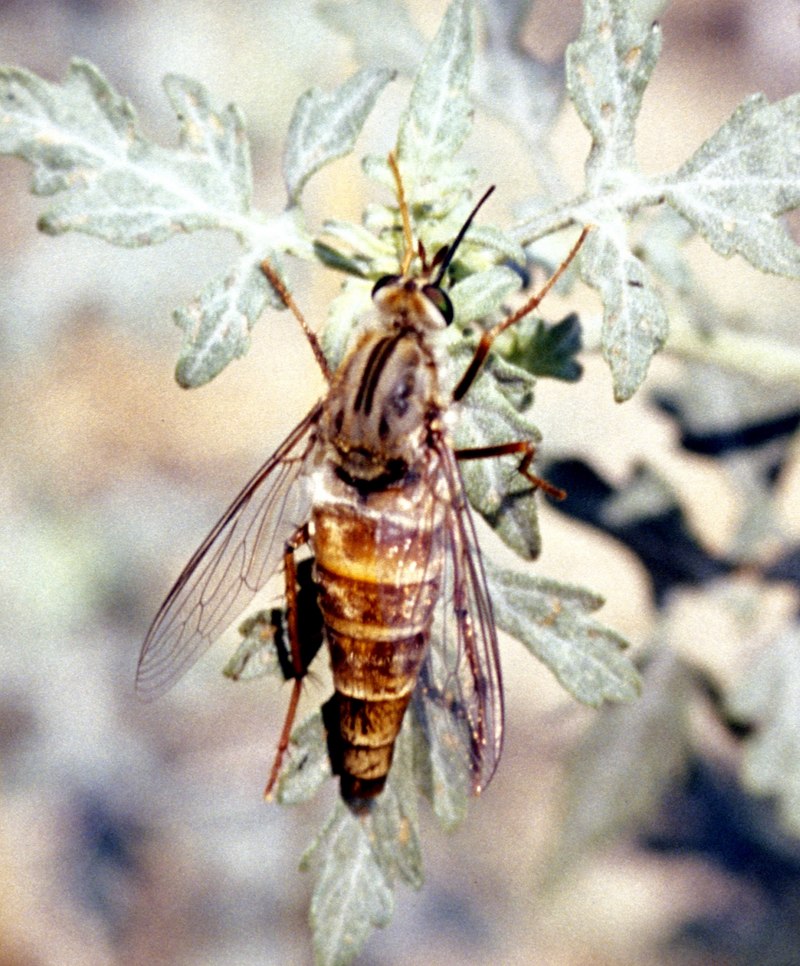|
Delhi Sands Flower-loving Fly (Rhaphiomidas terminatus abdominalis) - Wiki
| 제목: | Delhi Sands Flower-loving Fly (Rhaphiomidas terminatus abdominalis) - Wiki
| |

| 해상도: 1954x2360
파일크기: 952097 Bytes
등록시간: 2007:01:30 01:27:20
|
Delhi Sands flower-loving fly
From Wikipedia, the free encyclopedia
[Photo] Delhi Sands flower-loving fly (Rhaphiomidas terminatus abdominalis). Source US Fish & Wildlife Service Digital Library System - http://dls.fws.gov/DATA/files/12BB210B-EEBA-436F-9C965C05FBE2EB03.jpg Date:a 3 October 2002. Author Marjory Nelson
The Delhi Sands flower-loving fly is a mydid fly in the genus Rhaphiomidas, and the only fly presently on the Endangered Species List. This subspecies is restricted to the Delhi Sands formation, an area of ancient inland dunes of which only a few hundred acres out of more than 40 square miles remain, the rest largely now forming much or all of the foundation on which the towns of Colton, Fontana, and Ontario, California are built. The adults are only active for a few weeks each year, feeding on flowers, in August and September. Almost nothing is known about their biology, though early instar larvae appear to be attractive to ants, and are brought into the ant nest (it therefore seems likely that the larvae are predators of the ant brood).
This fly was emergency-listed by the United States Fish and Wildlife Service in 1993, and it has been an extremely contentious listing ever since. Political officials and news services from the region have repeatedly decried this fly as a disease-carrying pest, despite documentation that it is not; there have been repeated attempts by local officials to have the species de-listed. Residential and commercial development, agricultural conversion, sand mining, invasion by exotic species, dumping of cow manure and trash, and off-road vehicle use have resulted in significant loss and modification of the species' habitat. Estimates are that over 97% of the original habitat is already gone, and only a portion of what remains is suitable habitat for these flies.
There are an estimated 5-10 more species of insects endemic to the Delhi Sands formation, including newly-discovered and still unnamed species of scarab beetle, sand roach, and Jerusalem cricket.
http://en.wikipedia.org/wiki/Delhi_Sands_flower-loving_fly
| The text in this page is based on the copyrighted Wikipedia article shown in above URL. It is used under the GNU Free Documentation License. You may redistribute it, verbatim or modified, providing that you comply with the terms of the GFDL. |
|
^o^
동물그림창고 똑똑전화 누리집
^o^
|
|